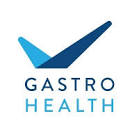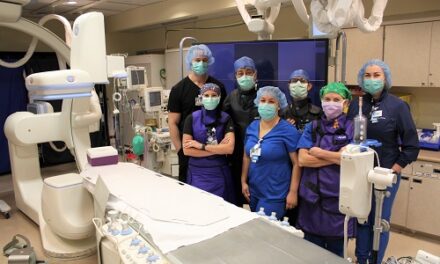A gastroenterologist’s reaction
By: Dr. Adam Lessne, Gastro Health
October 13, 2022 – A recent study by Bretthauer, et al, was published in the New England Journal of Medicine (NEJM) on October 9, 2022. This study, known as the NordlCC trial, was a randomized control trial from centers in Poland, Norway, Sweden, and the Netherlands. The 10-year study evaluated the efficacy and safety of colonoscopy, a screening procedure for colon cancer that is considered a gold standard of care in the United States that looks for inflammation of the colon, pre-cancerous growths of the colon (polyps), or even cancer in the large intestine (colon) and the rectum.
There were 84,548 participants from Europe between the ages of 55 to 64. Among those, 28,220 were invited to undergo a singular screening colonoscopy. The remaining 56,365 were to receive “usual care”. All participants were followed for ten years.
The authors found that the risk of colorectal cancer was reduced by 18% in those who received the singular screening but denoted that there was no significant mortality reduction at 10 years when compared to those who did not undergo a colonoscopy.
In essence, the study questions the efficacy of colonoscopy and has left some people wondering whether the benefits of having a colonoscopy may be overestimated. How do gastroenterologists like me feel about the outcomes of this study?
Spoiler alert! We still believe that colonoscopy can save lives.
STUDY FLAWS
When you look at the intention to treat analysis – meaning the patients that were randomized into colonoscopy and actually received the procedure – the study showed that having a colonoscopy was indeed effective with a risk reduction of cancer by 31%, as well as a reduction in the risk of death from colorectal cancer by 50%.
However, the study’s conclusion does not spell this out. Only 42% of patients who were randomized in the colonoscopy group actually followed through with getting the procedure,
yet the study’s analysis includes everyone invited to undergo a colonoscopy – those who underwent a colonoscopy and those who did not.
As well, only 23% of patients in the study received sedation with their colonoscopy. In the U.S., this would not be tolerable and is a procedure where the patient is asleep comfortably. If a patient is awake during a colonoscopy, the doctor may not be able to perform the procedure thoroughly and as proficient in finding polyps.
Another problem with this study is that we wouldn’t consider the physicians who were performing colonoscopies in Europe to be proficient in this procedure. Only 38% of them meet the benchmark for adenomatous detection rate, or ADR, which is a measure of how we grade ourselves as gastroenterologists and is considered standard of care by gastroenterology societies.
Given the flaws and limitations in this study, I was surprised to see that it was published in the New England Journal of Medicine. Unfortunately, I feel that the public is now misled as a result of the study. In fact, the findings have led to concerns and national societies such as the American College of Gastroenterology (ACG) and the American Society of Gastrointestinal Endoscopy (ASGE) have cautioned against misinterpreting the findings in statements they have since released. (Click here for the ACG statement. Click here for the ASGE statement).
BENEFITS OF COLONOSCOPY
Prior to this study, there has been ample evidence documented that speaks to the benefit of colonoscopy. Multiple prior studies conclude that colonoscopy can reduce the incidence of colon cancer by more than 50% and reduce the risk of dying of colon cancer by as much is 68%. Additionally, when you look at the intent to treat from this recent analysis, it also showed significant benefit. Therefore, the limitations of the study do not change the plethora of evidence in support of colonoscopy.
The body of work prior to this study is the reason why the United States Protective Task Force continues to endorse colorectal cancer screening. In fact, this same task force recently reduced the recommended age for colon cancer screening from 50 to 45, given that there has been an increase of colon cancer in younger patients.
African Americans are also at an increased risk of about 20 percent compared to other ethnicities of developing colon cancer. The U.S. has a much more diverse population than the Scandinavian and Eastern European populations that were reflected in this study. It is of utmost importance that minorities follow the recommended screening guidelines.
FINAL THOUGHTS
In my professional opinion, I would be very cautious about interpreting this new study given the limitations described above. What we know for sure is that the best way to prevent colon cancer is to get screened. A colonoscopy is the best way to detect and remove polyps in the colon, which prevents colon cancer. A successful colonoscopy is one that is able to detect polyps greater than 5 mm. While other methods for screening exist, such as a fecal occult stool test or Cologuard, both have their detection limitations. While Cologuard detects 92% of colon cancer, it only detects 42% of advanced colon polyps, which are at high risk of transformation into cancer. Therefore, a colonoscopy is the best way for screening to occur as it can detect small polyps and remove them at the same time.



























